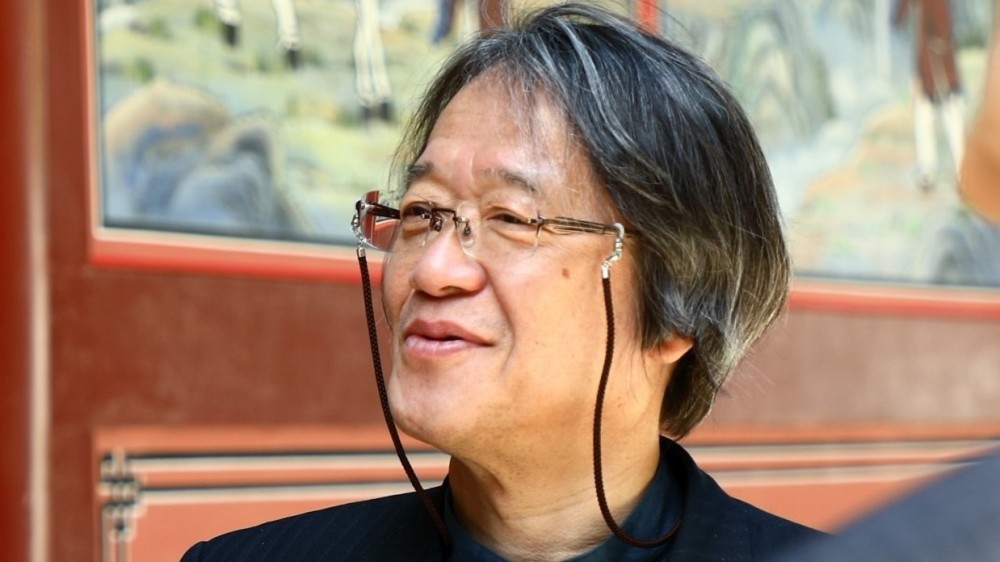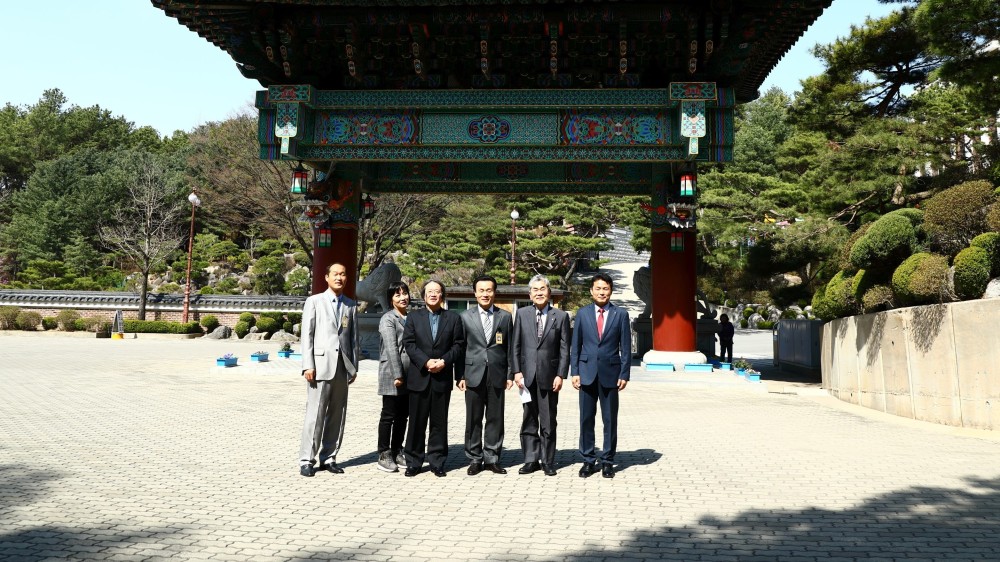- We Are So Truly Alike! (Hiromi Yano)
- 2021-04-21
 When others in Japan heard that I was planning to visit South Korea, many asked, “Are you sure you want to go there right now?” Many Japanese are under the impression we are poorly received in South Korea. My answer was pretty simple though: “Don’t be silly.” And I was right. Although I spent less than 72 hours in your country, I found members of Daesoon Jinrihoe and other Koreans, to be friendly, helpful, and interested in me and in Japan. The religious ceremony we attended was memorable.
When others in Japan heard that I was planning to visit South Korea, many asked, “Are you sure you want to go there right now?” Many Japanese are under the impression we are poorly received in South Korea. My answer was pretty simple though: “Don’t be silly.” And I was right. Although I spent less than 72 hours in your country, I found members of Daesoon Jinrihoe and other Koreans, to be friendly, helpful, and interested in me and in Japan. The religious ceremony we attended was memorable.Eiichi Suzuki, then chief director of Oomoto, and I, were invited by Yoon- Eun-do, president of Daesoon Jinrihoe, to attend the monthly Devotional Offering Ceremony in April of 2019. We arrived at Yeoju Temple Headquarters on April 7th and left on the 10th. I vividly remember the traditional attire they gave us to wear for the religious ceremony. Oomoto and Daesoon both value the religious vestments, rituals, and other traditions.
Jay (Cha Ikje), leader of the International Affairs Team, and his staff were so kind to help us put the clothes on before the ceremony. Standing through the ceremony was challenging, but when we had naorai or as you say in Korean, eumbok, I felt rewarded for my effort. In the Oomoto context, we usually translate naorai into English as “a post-ceremony feast,” and in Daesoon Jinrihoe, eumbok is translated as ‘blessed food.’ We learned that in Daesoon Jinrihoe, similar to Oomoto, eating together with the congregation is a part of the ceremony.
I found other less fortunate commonalities between Oomoto and Daesoon Jinrihoe, but perhaps these are actually broader societal commonalities between Korea and Japan. Namely, when we attended executive meetings at the Yeoju headquarters, it was just like Oomoto. Most of the attendees were older men in black suits and ties. I have nothing against these men or their suits and ties. They were very distinguished, friendly, and cooperative. Oomoto is the same. Although we always have a woman as our spiritual leader, as mandated in the sacred Oomoto teachings, the vast majority of our directors are conspicuously men of advanced age, most often in black suits and ties.
 I am not involved at all in the feminist movement. But I do not think either of our teachings emphasize strict gender roles for men or women. I have become quite aware of these matters this past year because I have three married sons all working at their homes due to COVID-19 mandates. It is only now that they realize how exhausting household chores can be and how meaningful it is to care for their children.
I am not involved at all in the feminist movement. But I do not think either of our teachings emphasize strict gender roles for men or women. I have become quite aware of these matters this past year because I have three married sons all working at their homes due to COVID-19 mandates. It is only now that they realize how exhausting household chores can be and how meaningful it is to care for their children. During our short visit, we visited Daejin Girls’ High School where we spoke to three brilliant students. In the future, I hope these girls will take the helm of their nation. Regardless of conservative or liberal leanings, Daesoon Jinrihoe and Oomoto should continue to keep our good old traditions while also examining societal conventions that warrant reconsideration. Personally, I disregard politicians, but we should honor the official decisions made between countries. Sentiments should be set aside.
To overcome our misunderstandings, Oomoto and Daesoon Jinrihoe should engage in more interfaith exchanges like Daesoon Jinrihoe’s World Sangsaeng Forum and Oomoto’s IRUHA (the International Network of Universal Love and Brotherhood Association). Koreans and Japanese are similar in both positive and negative ways. Our cultural bonds, which nearly make us family, ironically make our interactions harder than they would be with complete strangers. As everybody knows, K-Pop is popular among Japanese youths and Japanese anime is popular with young Koreans. I emphasize youths because their mindset predicts our future. I have seen this directly with joint Israeli and Palestinian youth programs in Japan over the past two decades. Participants often remark they never realized how similar Israelis and Palestinians were until they came to Japan to live and travel together. Through IRUHA, youths from Daesoon Jinrihoe and Oomoto shared important teachings from their respective religions with one another. I believe this kind of sharing among the young bodes well for future relations between both our religions and our nations.
